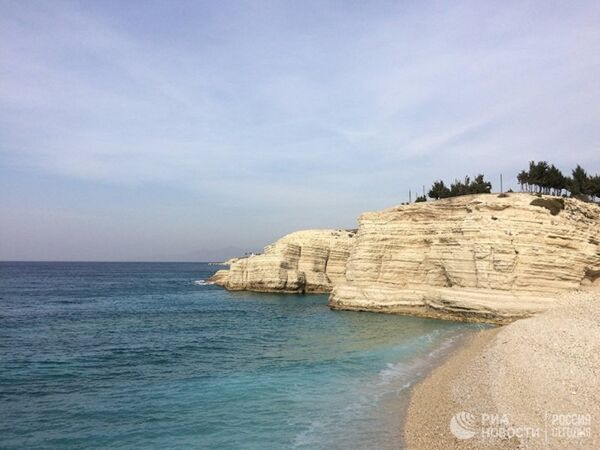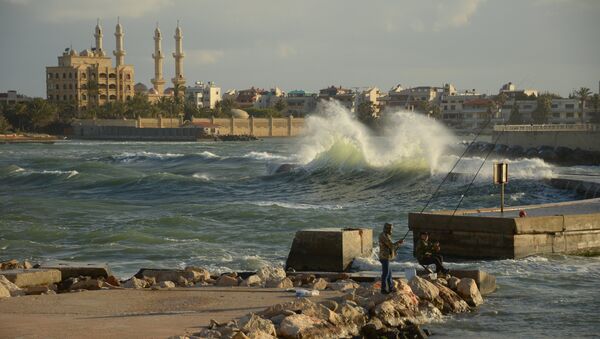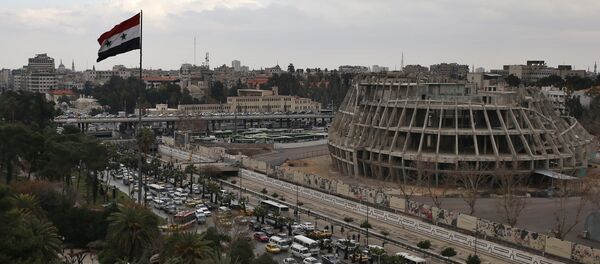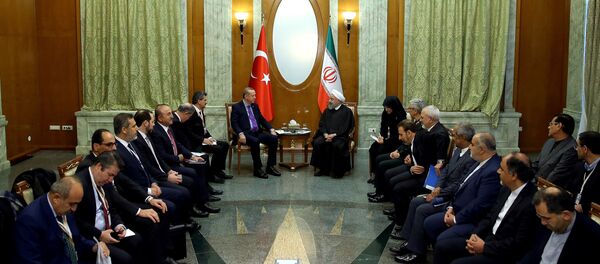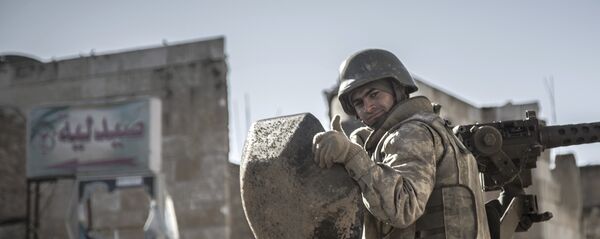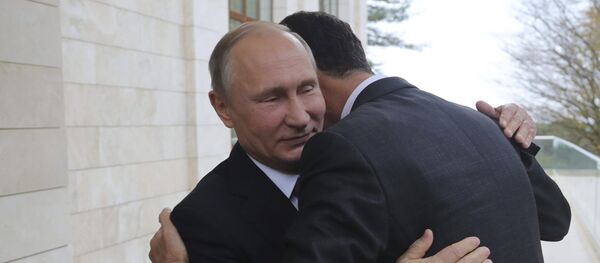LATAKIA (Syria) (Sputnik) — Despite heavy shelling and terrorist attacks, this Mediterranean resort has been comparatively safe for over two years now, though its peaceful measured life still bears the marks of war.
Contrasts
The palm trees that grow along the side of Latakian roads are all different heights: some are tall, while others are small. There are also citrus and olive trees which adorn the courtyards, as well as shrubs and bushes abundantly strewn with white, pink, orange and purples flowers.
There are not many tall blocks of flats in the city. People mostly live in five story buildings with large open balconies. More luxurious residential properties are located closer to the sea.
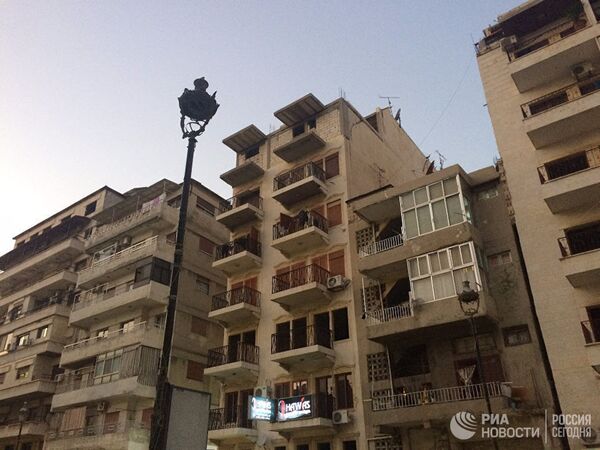
The city has a lot of unfinished buildings. Local residents say building work was in full swing in Latakia but following the outbreak of war and due to the lack of funds the construction work was put on hold.
READ MORE: Politologist: 'US Goal in Syria Was to Weaken or Destroy It'
In some places, waste crunches under your feet. It is common to see a shop assistant emptying a box of rotting tangerines on the side of the road a few meters away from his shop. Latakia does not have many trash cans. Sometimes, one can see large smelly waste containers but often they are not used for local rubbish.
Latakia’s main street is a busy shopping hub. There are large shopping malls, little shops, kiosks and stands selling spices. Locals say there is nothing you cannot find on this street.
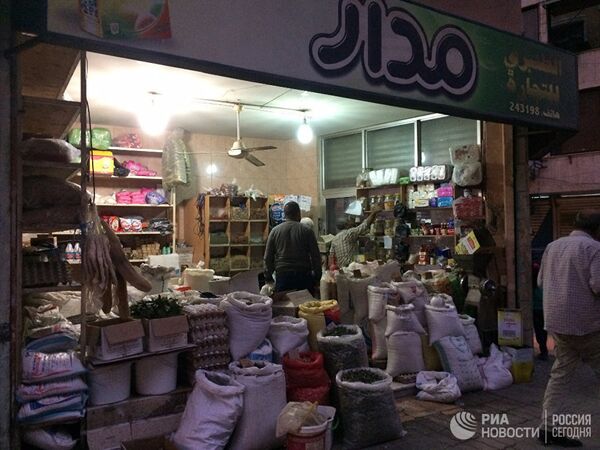
There is also an abundance of cafes and restaurants to choose from. Most of them sell traditional shawarma and kebabs but some offer pizza and pasta.
Along with bright lights and colorful shop signs, there are many beggars. Gray-haired elderly people in torn clothes, men in wheelchairs and young children who sometimes pull people’s sleeves and grab them by the legs. If a passer-by kindly donates money to a child, he/she will be immediately surrounded by a crowd of others. Even if the person breaks out of the circle, children follow him/her begging for money or food for another 100 meters.
READ MORE: Syria's Kurds Likely to Suffer Similar Fate to Their Iraqi Counterparts
Many Latakians have also been impoverished by the war. Local residents say dozens of factories, shops and enterprises have had to close in recent years, stripping people of their jobs. To make things worse, prices have increased 10-12 times. Some families cannot afford to even send their children to school and feed them more than once a day. Children wear ragged clothes with holes and patches and spend their days in the streets.
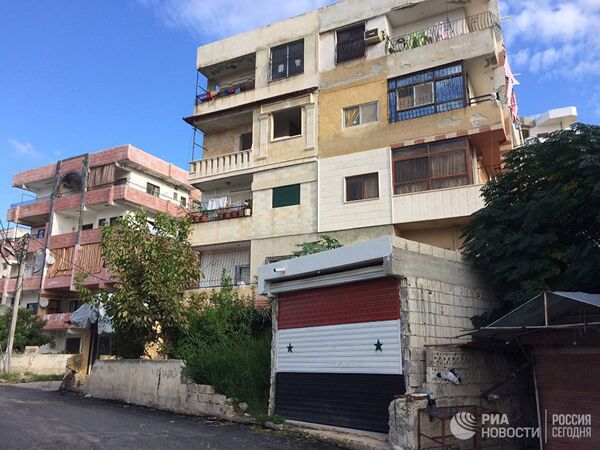
Symbols
There are many portraits of Syrian soldiers in the city. Representing Latakia-born men, who died as heroes in the ranks of the Syrian army, these are fastened to the walls of houses, where they lived or on roadside poles. A sign under each photograph says where the hero died and describes his feat of valor.
Wherever you look in Latakia, the eye catches real or painted flags of the Syrian Arab Republic. They are on the facades, fences, windows, balconies, garage doors, vending kiosks, and cars. Often a state flag can be found side by side with a flag of the ruling Baath party.
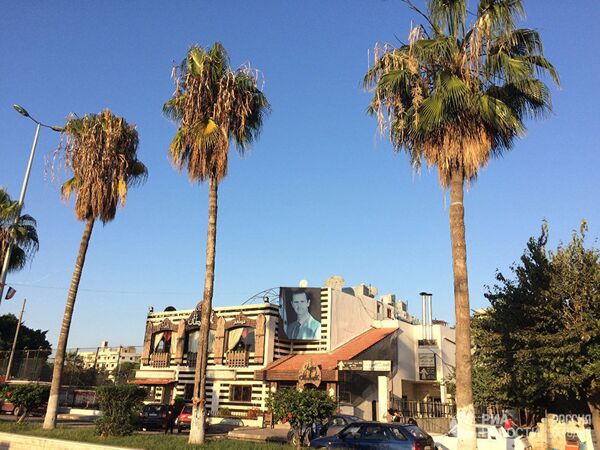
You can also come across Russian flags both in the city and its environs. And the closer you come to the Khmeimim airbase, the more numerous they are. The locals are fond of Russians, whom they call friends and brothers. At coffee shops or in the marketplace they might refuse to take your money, if you tell them you are from Russia. Some cabbies may give you a free ride once they hear you speak Russian. A cafe awning not far from the city center sports the name "Russia" written in white, blue and red letters.
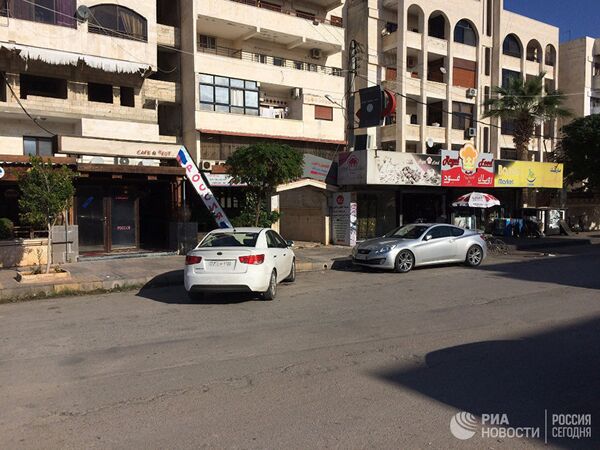
Near the port, there is a monument to the former Syrian leader, Hafez Assad, while the portraits of his son and successor, President Bashar Assad, are as numerous as the national flags. His photographs or pictures with his image are both on house facades and inside buildings. Stickers with his stencil image in sun glasses adorn many a car window. In the suburbs, you can occasionally see Bashar Assad portrayed alongside Russian President Vladimir Putin.
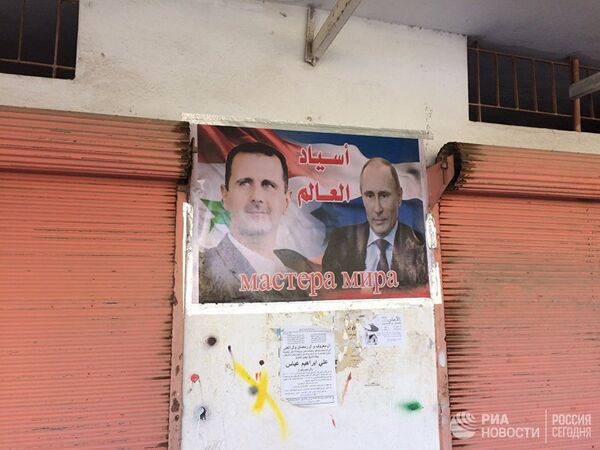
The Assad family is also looks back at you from Syrian money: Bashar is depicted on the 2015 2,000-pound bill, while Hafez — on the 1997 1,000-pound bill.
READ MORE: How Victorious 'Triumvirate' Prevented Syria From Repeating Libya's Fate
In many places, US dollars are in circulation alongside Syrian pounds, but the US currency elicits a particularly reverent attitude. While a pound bill will be accepted everywhere, even if it is worn out, torn or pasted over with scotch, a dollar bill will be closely examined and turned down at any shop, should they find the slightest defect.
A place called Sahra Abyad (White Rock), a pebble beach with rocks rising from the blue sea like islands, is within 20 kilometers (12 miles) from the center of Latakia. According to Syrians, it is one of Latakia’s symbols and used to be very popular with foreign tourists, so much so that Sahra souvenirs were sold all over the city.
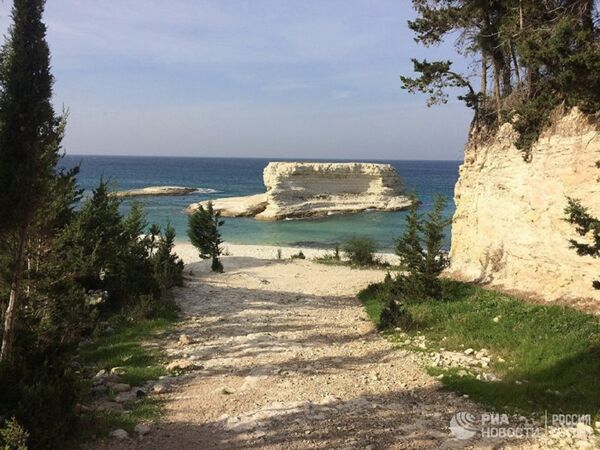
Today there are very few people on the beach and the adjoining territory has run to ruin. Though deserted, this scenic spot is strewn with litter, with empty bottles, plastic bags and cigarette-butts catching the eye among stones, shells and remains of crabs and turtles.
The road to the beach is dotted with dozens of citrus groves. The low trees are awash with orange or yellow fruit. Here fruit are picked even before they fully ripen. As early as October, shops start selling green fruit. The color is no problem: everyone knows that they are already sweet.
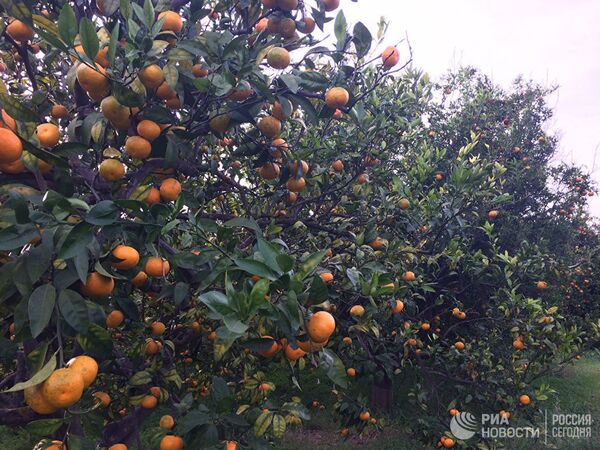
Daily Life
To a Russian, traffic in Latakia may seem chaotic. Road markings are scarce, few drivers use turn signals, and wrong-way driving is common. Watching Syrians overtake one another or cross a roundabout is just scary. Still, locals motorists seem very fond of honks. Sluggish traffic may be the main reason why Latakia is not overwhelmed with accidents.
The city is filled with older European car models of Mercedes Benz, Peugeot, Volkswagen и Citroen. Volkswagen Beetle is especially popular — you will find one parked next to virtually every other house near the center of the town.
READ MORE: Russia to 'Significantly' Reduce Military Presence in Syria — General Staff
You can find Soviet and Russian models, too. Often it is an UAZ or NIVA off-roaders, but there are also smaller models such as Lada-2105, Lada-2107, Lada-2109 and Lada Oka. VAZ-2115 and VAZ-2112 are a rare sight. A lucky traveler may even stumble on a Minsk and Iz motorcycle.
Minivans for 10 to 12 passengers maximum are usually used for for public transportation. Those who have failed to get inside can travel outside by climbing on the bumper and clutching the rear door wheel or the roof trunk. Workers are seen riding on truck bumpers holding fast to hoods and canvases.
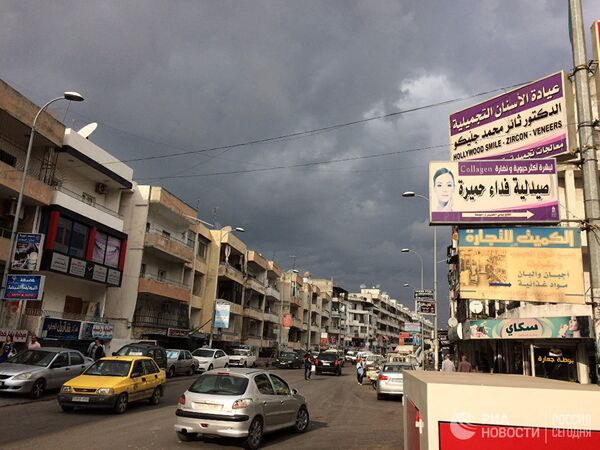
Roads in Latakia have many blockposts where cars get checked by the military. An inspection can last for up to 10 minutes. Some locals are annoyed, but other show understanding, considering the measures to be for their safety.
READ MORE: US Troops to Remain in Syria After Daesh Defeat — Reports
Being in town in the evening, especially on Fridays, the main day of the weekend, you may hear the sounds of gunshots. War, however, has nothing to do with it. It is how locals celebrate, by shooting up in the air, happy occasions such as a son’s wedding, an anniversary, the slaying of a ram or the buying of a fridge. The custom is upheld by the ready availability of firearms present at nearly every household.
No place in Latakia is off-limits to smoking. Locals can be seen lightning up during an evening meal at a cafe, on the moving stairs of a trade center, between the stalls of a store, in a line at a telecom office or behind the desk at the very same office. Stubs are often casually thrown away, rather than put in an ash tray.
#Syria at the resort of Wadi Qandil, close to the seaside city of Latakia pic.twitter.com/TmtfnA9ziu
— Nepareizais (@Nepareizais) July 7, 2017
Syrian waiters are very attentive. A guest is typically welcomed by several of them, with sweet smiles, and should expect at least a dozen visits during a meal — to be asked if everything is all right, and to have his or her ash tray changed even if it is empty.
Most waiters speak English, but some have even mastered Russian. In terms of language learning, they take matters in their own hands by asking clients to teach them new expressions.
For many Syrians, Latakia is the "gem" of the Mediterranean. Before the war many foreign tourists were coming here on vacation, even from other continents, they say. The town hopes for a swift return of tourism. People here are certain that it will only take a short time to bring peace to the whole of Syria.
